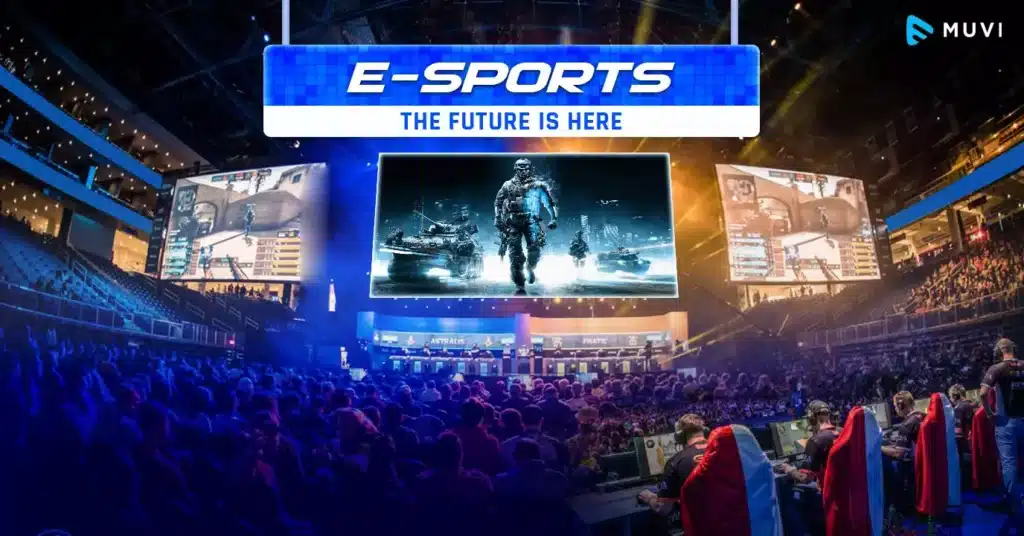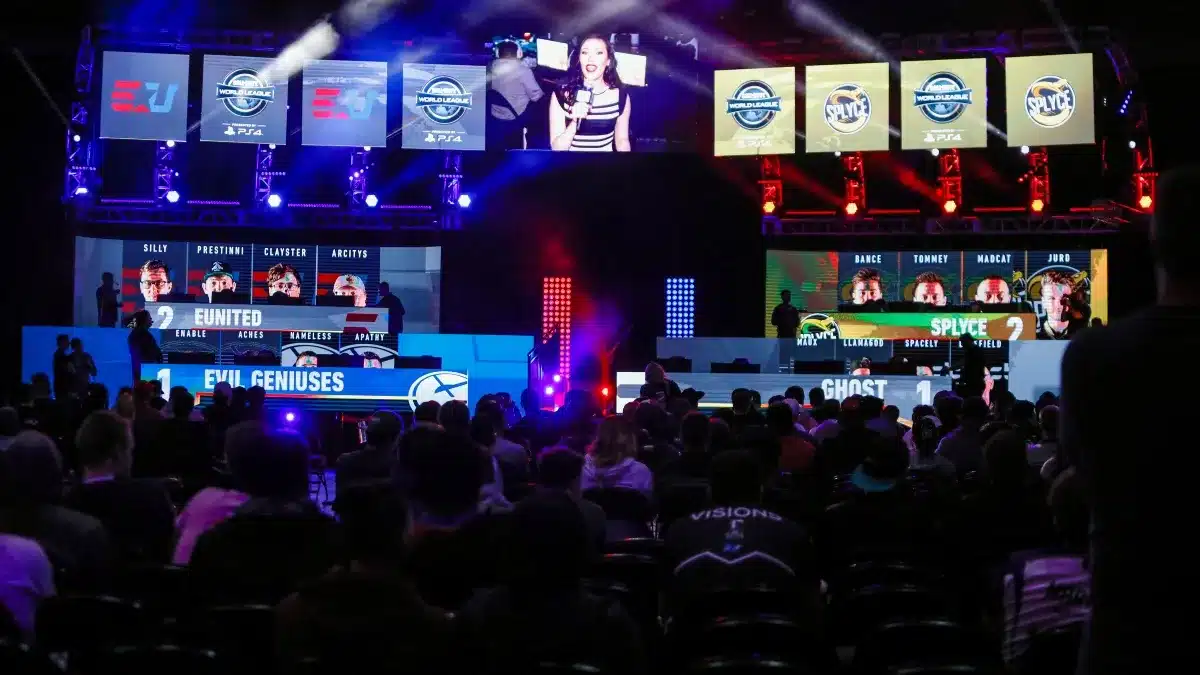Table of Contents
Esports have become a booming industry, with more players and prize pools than ever before. While this growth has mainly been positive, it has also opened up new avenues for cheating. Aimbots and ESPs (Extra-Sensory Perception) have been used to gain an unfair advantage in competitive play.
This article will analyze the various forms of cheating in esports, their impact on competition, and how organizations and game developers attempt to combat them through anti-cheat solutions. It will also discuss potential rewards and punishments for those caught cheating.
Finally, it will explore how the esports community can work together to prevent future cheating occurrences.
Common Types of Cheating in Esports
Common types of cheating in esports include using aimbots, and ESP hacks to gain an unfair advantage in competitive play. An Aimbot is a software designed to assist players in aiming at opponents, allowing them to hit targets more quickly and accurately than they would otherwise be able to do. ESP hacks provide information about opponents’ locations, enabling players to strategize their moves and tactics better. Various providers in the gaming industry provide hacks or game enhancements, such as SecureCheats.
Additionally, some players have been known to use scripts or macros to trigger specific actions with a single keystroke or mouse click, giving them an edge over their opponents.
Cheating in esports has become increasingly common as the industry proliferates. As such, tournament organizers and game developers must take steps toward curbing cheating practices within the community. This involves implementing anti-cheat measures such as enforcing bans on those caught using cheats or designing games with built-in cheat detection systems.
Additionally, tournaments can require players to sign agreements that they will not cheat during competitions and implement punishments for those found guilty of doing so.
The fight against cheating in esports is ongoing, but there is hope that these practices can be minimized across the industry through continued effort. It is up to tournament organizers and game developers to take proactive steps toward ensuring fair play for all participants while providing an enjoyable experience for everyone involved. With proper regulations and enforcement, esports can continue its growth without having its integrity compromised by dishonest behavior from some participants.
The Impact of Cheating on Competitive Play
The prevalence of cheating in competitive play has had far-reaching implications for the esports industry. From an economic standpoint, it has caused a decrease in viewership and revenue due to players losing confidence in the integrity of professional games. Furthermore, it has created an atmosphere of mistrust and resentment between players, leading to teams and organizations being unwilling to participate if they perceive the risk of their opponents cheating is too high.
From a psychological perspective, cheating can have devastating effects on individual players and the community. Players may experience anxiety or depression when competing against cheaters. At the same time, members of the esports community are more likely to be suspicious of each other and less likely to show respect for opponents’ successes. This leads to animosity between individuals, making participating in tournaments less enjoyable for everyone involved.
In terms of competitive balance, cheaters have an unfair advantage over those who abide by the rules, which distorts tournament results and rewards dishonest behavior instead of skillful play. This undermines viewers’ belief that competition is fair, which can further damage trust in professional matches and lead to fewer spectators watching tournaments live or online.
Cheating also erodes public confidence in esports as a legitimate entertainment since many players still associate it with unfair practices. The negative reputation created by cheaters casts doubt on the legitimacy of esports tournaments even after measures like anti-cheat software have been implemented to prevent such activities from occurring again. Consequently, this causes potential sponsorships or investors to shy away from investing money into events or teams because they worry about how their brand will be perceived by associating with them.
Anti-Cheat Solutions and Their Limitations
Combating cheating in esports is a complex challenge that requires various solutions. Anti-cheat software offers one avenue to address the problem, though there are drawbacks associated with such tools. These technologies are designed to detect when players use hacks or other illegal methods to gain an advantage over their opponents. However, they can be expensive and challenging to implement on a large scale. Additionally, even the most sophisticated anti-cheat systems can be circumvented by experienced hackers who can bypass them.
The prevalence of Aimbots and ESPs has led some tournament organizers to take additional steps to ensure fair play. This includes manually reviewing recorded matches for suspicious activity and implementing hardware-based solutions such as face recognition technology or biometric scans of players’ hands before each game begins. While these measures have been effective in some cases, they can also be time-consuming and costly for tournament organizers.
Esports organizations have also implemented more substantial penalties for cheating to deter potential cheaters from attempting it in the first place. Penalties range from warnings and fines to permanent bans from competitive play if a player is found guilty of cheating multiple times. The effectiveness of these punishments varies depending on the game being played and the governing body responsible for enforcing them. Still, many organizations believe increased penalties will lead more players to think twice before cheating during tournaments or leagues.
Addressing cheating in esports requires technological solutions and stricter enforcement policies that work together towards a common goal: discouraging cheaters while providing fair competition for all participants. It is an ongoing battle that requires continuous vigilance from tournament administrators and players alike if we want esports competitions to remain honest and enjoyable experiences for everyone involved.
The Role of Esports Organizations and Game Developers
To effectively combat cheating in esports, organizations and game developers have a significant role to play.
Esports organizations need to be proactive in setting anti-cheat policies that are regularly updated and enforced. This includes providing clear instructions regarding cheating methods, such as aimbots or ESPs, and penalties for breaking those rules. Additionally, they should ensure all players are aware of these policies and remain compliant with them at all times.
Game developers also have an essential role in preventing cheating by creating comprehensive anti-cheat measures that are regularly updated and tested against new forms of technology cheaters use. They can also provide better support for tournaments and professional leagues, ensuring that rule violations are addressed swiftly and appropriately without ambiguity.
Lastly, game developers could work with organizations to develop stricter regulations around tournament participation and higher standards for competitive integrity. By doing so, they can help create a culture where players feel safe from cheaters while still encouraging a healthy level of competition between teams.
Despite their limitations, these measures taken by both organizations and game developers serve an essential purpose in combating cheating in esports by setting clear expectations for everyone involved and helping promote fairness across the whole community.

Rewards and Punishments for Cheaters
Stemming the tide of illicit tactics requires meaningful rewards and punishments for those found guilty of cheating. To this end, organizations have implemented a variety of strategies:
Rewards:
- Incentivizing players to report suspicious activity with financial rewards or in-game credits.
- Offering rewards for participation in tournaments or leagues as an additional incentive.
- Working with game developers to create anti-cheat systems recognizing and rewarding honest gameplay.
Punishments:
- Applying temporary bans from competitions upon detection of cheating behavior.
- Imposing fines on players who are caught engaging in nefarious practices.
- Reducing the rank or score of players whose activities are deemed illegal by tournament organizers or governing bodies.
These efforts aim to make it increasingly difficult for cheaters to succeed while simultaneously encouraging honest players and rewarding them for their actions.
Such initiatives can help reduce incidents of cheating, yet they must be regularly monitored and updated if they are expected to remain effective over time.
Conclusion
Esports has long been plagued by cheating, primarily through Aimbots and ESPs. These cheats can devastate competitive play, diminishing the hard work and dedication of honest players.
Esports organizations and game developers have worked to develop anti-cheat solutions. However, it is an ongoing battle as new methods are constantly being developed to gain an unfair advantage.
The most effective approach seems to be offering rewards for reporting cheaters while punishing those caught with permanent suspensions or bans from tournaments. This powerfully conveys that cheating will not be tolerated in esports communities.





